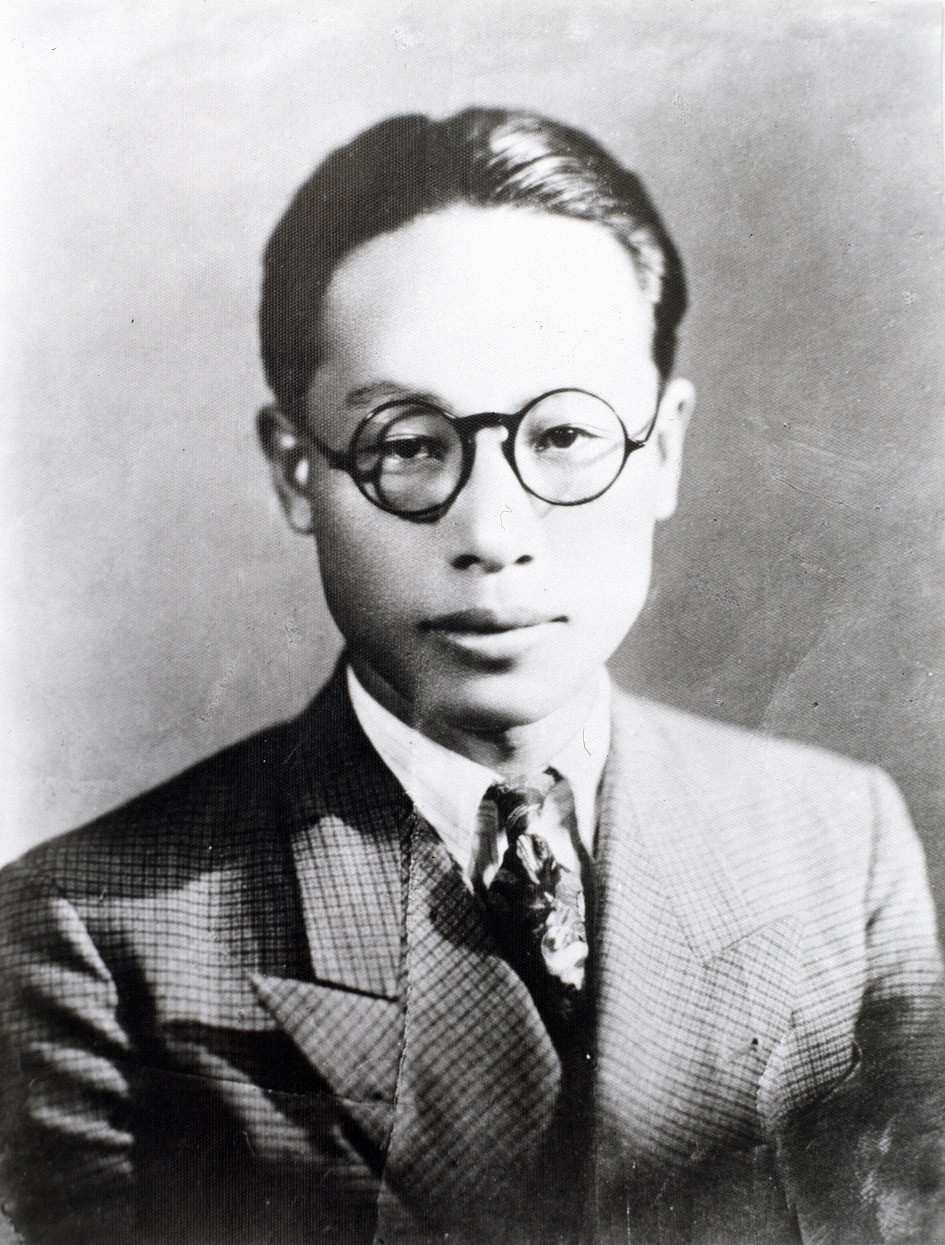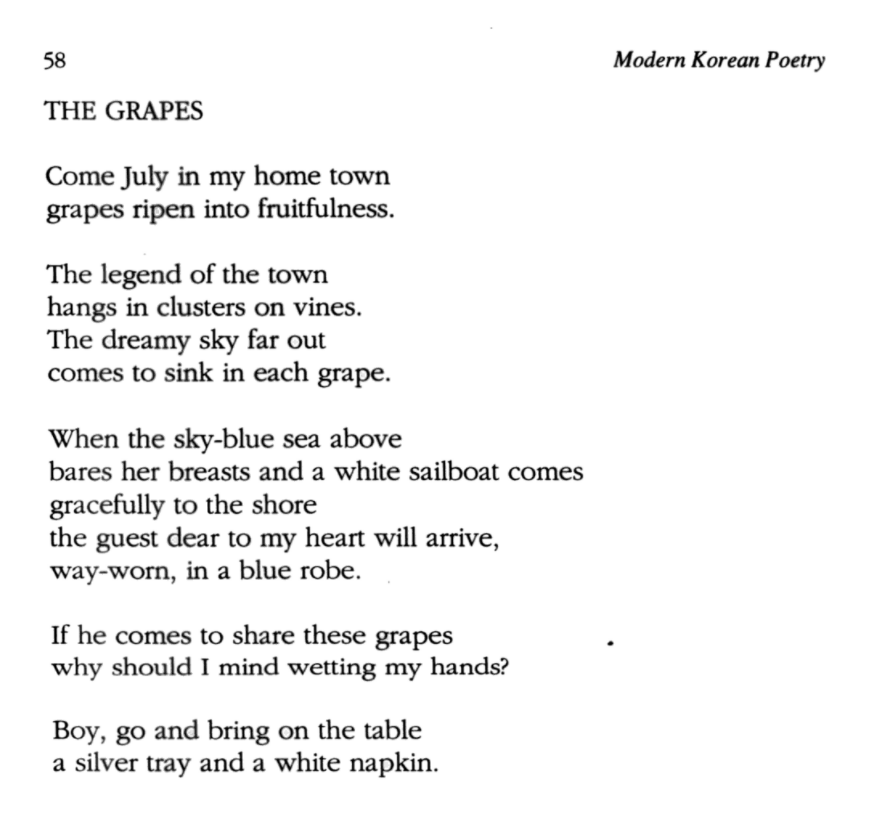October 9 of this year, Koreans will commemorate the 575th Hangul Proclamation Day. Hangul Day is a national holiday designated to celebrate the creation of the Korean alphabet, Hangul, and educate people about its originality and scientific superiority. In 1926, during the Japanese colonial period, the Korean Language Society designated September 29 on the lunar calendar as Hangul Day for the first time. The Korean Language Society called this day ‘Gagyanal’ to celebrate the 480th anniversary of King Sejong’s promulgation of ‘Hunminjeoneum’, which is the first document written using the Korean alphabet. Since then, the writing has enabled Korean authors to among other things, express their stories and views in countless works of literature and poetry. Therefore, in commemoration of Hangul Day, the Dankook Herald (DKH) has decided to feature the life and works of Lee Yuk-sa, a Korean poet and independence activist.
 |
| ▲ The Literary Giant of Korea, Lee Yuk-sa (Photo from Yonhap News) |
Lee Yuk-sa was the most active independence fighter among numerous poets and writers during the Japanese colonial period. He participated in various domestic independence movements, as well as in Manchuria, and personally participated in the efforts to bring in weapons for use by the Korean Independence Army since he was in his twenties. The fact that Lee Yuk-sa was imprisoned for his independence activities 17 times in his 39 years of life proves he was filled with a sense of national consciousness and patriotism. His real name was ‘Lee Won-rok.’ There are many theories regarding his name change. Lee Yuk-sa was imprisoned during the independence movement after joining the ‘Uiyeoldan’, an anti-Japanese armed independence movement group. His prisoner number was ‘264’. Another theory regarding the name change was derived from something he said. “I will tear history to death.” (I will tear apart Japanese colonial history and destroy the Japanese Colonial Period.) There are many other theories about the creation of his pen name, but one thing is clear, through his poetry, he wanted to solemnly express the unquenchable will of the national independence movement along with a sober awareness of the times.
In his poem ‘The Grapes’ Lee Yuk-sa talks of a desire for Korea’s independence and a peaceful world. This is one of his most famous works along with ‘Twilight’, ‘The Vertex’, ‘Wilderness’, and ‘Flowers.’ The poem describes an idyllic atmosphere by portraying the affectionate scenery of a hometown using elegant Korean words. It also has a bright and hopeful feeling because he used vivid descriptive colors in his poetic language. In “The Grapes”, you get a sense of how Lee Yuk-sa’s symbolic and metaphorical writing method was influenced by Japan’s literature censorship during the colonial period in Korea. In the poem, he equates the grapes to a ‘rich and peaceful life.’ As the narrator’s hope ‘sinks in each grape’, it expresses the poet’s longing for a tranquil homeland. Also, the repeated mention of the color blue symbolizes a positive attitude toward the future. Lastly, the narrator waiting and preparing for the ‘guest dear to my heart’ represents the poet’s yearning for Korea’s independence. Even though Lee Yuk-sa’s poems are written through metaphors, his thoughts are passed on in each work, and they are recited even to this day.
 |
|
▲ Poem 'The Grapes' by Lee Yuk-sa Written in English (Photo from Modern Korean Poetry)
|
The DKH interviewed Professor Kim Ok-sung in the Department of Korean Language and Literature at Dankook University (DKU) to learn more about the origin of Hangul day and the literary value of ‘The Grapes’ by Lee Yuk-sa. The Professor said the origin of Hangul Day comes from the original copy of ‘Hunminjeoneum Haerye’ discovered in 1940. ‘Hunminjeoneum Haerye’ had a compilation record written by Jeong In-ji, one of the scholars at Jiphyeonjeon, that discussed the origins of Hangul Day and that it should be celebrated on October 9 according to the solar calendar. So, it has been celebrated on this date ever since. He also said “The Grapes is a valuable poem published in Korean because it was published when Japan imposed strict censorship over the media. However, Lee Yuk-sa’s poem was able to escape Japan’s strict censorship back then as his poems were full of symbolic metaphors. Lee Yuk-sa expressed a sense of resistance to Japan with aesthetic and rhythmic qualities of language. Therefore, this poem can be evaluated as an excellent poem that gained literary recognition and instilled national awareness.” He also recommended reading ‘The Grapes’ in two typical ways. The first is to appreciate the image that stands out clearly as a purely literary work and the second is to focus on the metaphors while considering the historical context of the work. The Professor added, “This beautiful poem was published in the dark ages of Korea, an era full of pain. When we read this poem, we need to recall the noble sacrifices of our ancestors who preserved our language and kept faith alive with our own country.”
Hangul Day is a great day to think about the significance of our alphabet and learn about its history. To say that Hangul had an impact on Koreans ever since it was made will never be an understatement. Reading Korean poetry can be one way to commemorate this day and also fall in love with the beauty of Hangul. Yoon Dong-ju’s ‘Foreword’, Kim So-wol’s ‘Azaleas’, and Yoo Chi-Hwan’s ‘Rock’ are some of the poems you can start with. You’ll be surprised by their charms. There is no better way to celebrate.
권유지, 구시현, 김혜선 dankookherald@gmail.com

![[Campus Magnifier] Let's Surf the Library!](/news/photo/202404/12496_1765_4143.jpg) [Campus Magnifier] Let's Surf the Library!
[Campus Magnifier] Let's Surf the Library!
![[Campus Magnifier] Let's Surf the Library!](/news/thumbnail/202404/12496_1765_4143_v150.jpg)





